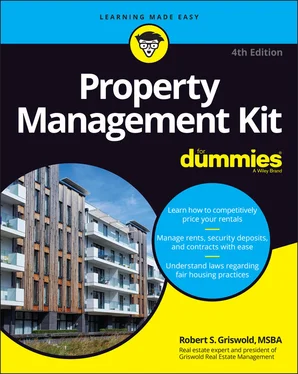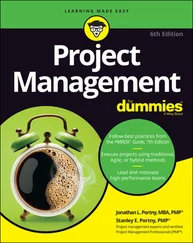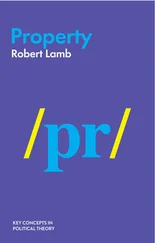The size, location, condition, and expected rental collections of the property: Generally, the larger the rental property, the lower the management fee as a percentage of collected income. Fees vary by geographic area and by the income potential of the rental unit, with a higher-end rental property commanding a lower-percentage management fee. For certain properties that may be difficult to manage, the company may have higher management fees or additional charges for certain types of services or for a certain period of time. Management companies may also propose charging a minimum monthly management fee or a percentage fee (opting for whichever of the two is greater). A property that’s in poor physical condition and needs extensive repairs and renovations, for example, requires the property manager to spend extra time supervising the improvements. This additional time requires additional compensation for the property manager.
Try to find a company with a management fee that’s a percentage of the collected income. This kind of fee strongly motivates the company to keep rents at market rate and collect them on time.
 Never pay a management fee based on the potential income of a rental unit — only on actual collected income. The potential income is not as important as the collected income. You want your property manager to only get paid when you receive income.
Never pay a management fee based on the potential income of a rental unit — only on actual collected income. The potential income is not as important as the collected income. You want your property manager to only get paid when you receive income.
Your management company’s compensation can be affected by more than just the standard considerations mentioned in the preceding section. Knowing how to look beyond the basics can save you money in the long run and make your management company work for you and your investment.
Make sure that your property manager is compensated in a way that incentivizes or motivates them to keep your rental property occupied by a stable, long-term tenant who treats your rental property as their home, respects their neighbors, and pays a market rent in a timely manner. Structure the compensation so that the management company has an incentive to get the property leased up (all vacant units filled) as soon as possible. When you’re analyzing your property manager’s compensation fees, keep these tidbits in mind:
Watch out for management fees that seem to be too low. The adages “You get what you pay for” and “If it’s too good to be true, it probably is” come to mind. Management fees that seem to be too low are a good indication that the property managers are spread too thin and may not manage your property properly. Poor management can result in unhappy tenants, which leads to higher turnover and longer periods of vacancy without rental income.
Understand that leasing fees are often justified and usually not negotiated. The most time-intensive portion of property management is tenant turnover. When one tenant leaves, the property manager must make the unit rent-ready; then they must advertise, field multiple inquiries, show the property, and screen the prospective tenants. Leasing fees may vary, but you can usually expect either a flat fee of several hundred dollars or a percentage of the rent, such as half or all of the monthly rental amount.
Making sense of management agreements
The management agreement is a pivotal document that spells out the obligations of the property management company to you, the client. Be sure to study the fine print, which is tedious but necessary to avoid unpleasant surprises. Even the management agreements available through state and national real estate organizations can contain clauses that are clearly one-sided in favor of the management company.
Many management agreements, for example, call for the property manager to collect and keep all the income from applicant screening fees, late charges, or returned check charges. Some agreements provide that the management fee must be paid even on any payments received from insurance companies as settlement for claims for property damage. Property managers justify this policy on the basis that they incur additional time and costs in handling such situations. But these fees should belong to you because you want to give the property manager a financial incentive to fill your unit with a tenant who pays rent on time and cares for the property. A management fee based on actual rents collected is a better arrangement.
The following are some nuggets that may be hidden in the fine print of your management agreement and how to protect your investment:
The “no management fee charged when the unit is vacant between tenants” line: Although this arrangement seems to save you money, especially when rental revenue isn’t coming in, the property manager can rush to fill the vacancy without screening tenants properly — and a destructive tenant can be worse than no tenant in the long run. It’s better to have a minimum fee that covers ongoing costs for the property manager to offer services and make periodic inspections, because vacant rental units can be more susceptible to damage than occupied properties. Most insurance companies have the right to cancel policies if the rental unit remains vacant for an extended period, as they have learned that a pipe break in a vacant unit can cause a lot of damage.
The hold-harmless clause: This clause protects the property manager from liability for their own errors in judgment or the mistakes of the workers the firm sends to your rental unit. One solution is to include a reasonable-care provision so that the property manager is motivated to be diligent in their management and avoid workers whom they know have had problems in the past. Your agreement should also mention such obvious requirements as informing you of what’s happening with your rental property.
The long-term management contract request: Some property management companies request long-term management contracts that can’t be canceled or can be canceled only for cause. Avoid signing any contract that can’t be canceled by either party with or without cause upon 30 days’ written notice. A company that knows it’s only as good as its most recent month’s performance will stay motivated to treat your property with the time and attention needed to get top results. But the company can make a reasonable argument that it needs a minimum term to amortize the significant time and cost of taking over a property. So rather than agree to a long-term, noncancelable agreement, I suggest that you negotiate an early-termination fee that’s waived after a certain number of months (typically, a year).
The confusing-language trick: If the property manager won’t agree to reasonable clarifications of the contract language or a complete list of the services provided for their fee, they may not go out of their way to help you later. Consider this refusal to be a warning sign, and find a property management company that is willing to accept your reasonable terms.
The “I’ll use my own agreement that suits my best interests” maneuver: Many property managers use their own in-house proprietary agreements, which are written strictly in the best interests of the property management company. Be sure to have your attorney review this agreement very early in the discussions with your potential property manager, and/or propose using an industry-standard management agreement from IREM or a local or state affiliate of the National Association of Realtors.
 I provide a sample Residential Management Agreement from IREM online
I provide a sample Residential Management Agreement from IREM online www.wiley.com/go/propertymanagementkitfd4e . Use this sample to familiarize yourself with such contracts.
Читать дальше

 Never pay a management fee based on the potential income of a rental unit — only on actual collected income. The potential income is not as important as the collected income. You want your property manager to only get paid when you receive income.
Never pay a management fee based on the potential income of a rental unit — only on actual collected income. The potential income is not as important as the collected income. You want your property manager to only get paid when you receive income. I provide a sample Residential Management Agreement from IREM online
I provide a sample Residential Management Agreement from IREM online 










